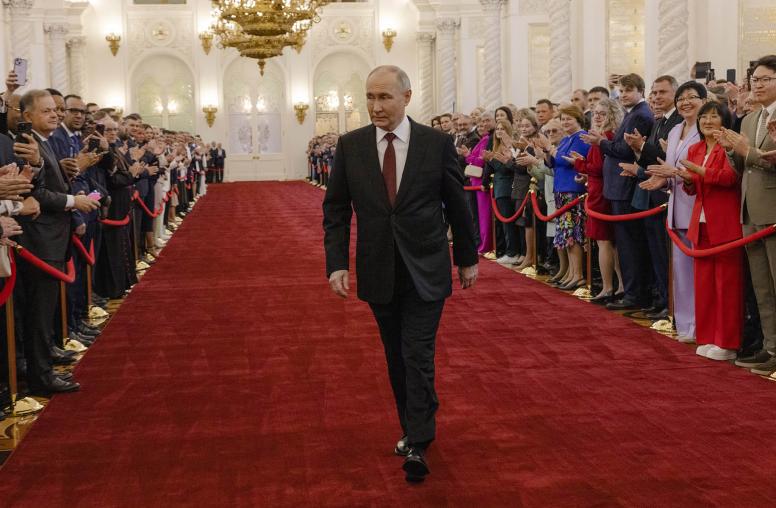Russian Asset Seizures and Justice for Ukraine
A Conversation with Ukrainian Minister of Justice Denys Maliuska
Since the early days of Russia’s full-scale invasion of Ukraine, the question of whether to use seized Russian assets — worth approximately $300 billion — to pay for the eventual reconstruction of war-torn Ukraine has been the subject of extended debate within the global community. However, the possibility has recently gained more traction within Congress, as both the House and Senate have advanced legislation that would authorize the seizure of these assets. It’s now more crucial than ever to understand this issue and its legal and political ramifications.
On March 13, USIP and Ukrainian Minister of Justice Denys Leontiyovych Maliuska hosted a discussion on the potential utilization of confiscated Russian assets to finance Ukraine’s post-war reconstruction efforts.
Continue the conversation on social media using the hashtag #UkraineUSIP.
Speakers
Lise Grande
President and CEO, U.S Institute of Peace
Denys Leontiyovych Maliuska
Minister of Justice of Ukraine
Ambassador David Scheffer, moderator
Former Ambassador at Large for War Crimes
Professor of Practice, Arizona State University



